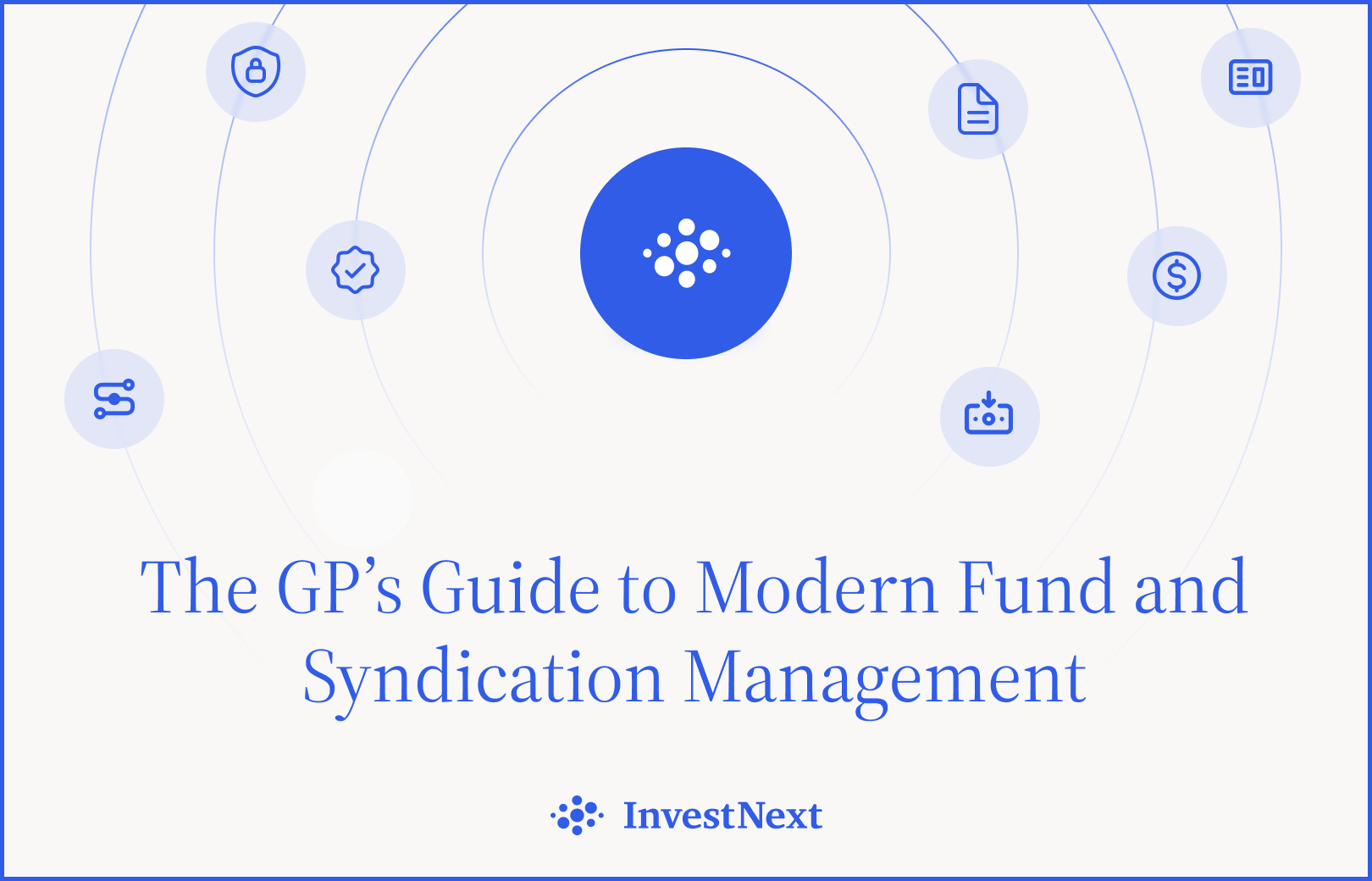In the dynamic world of real estate, finding the right financial backing is crucial. Private investors play an instrumental role in bringing visions to life, from skyscraping apartments to expansive commercial spaces. But the question remains: How to Find Private Investors for Real Estate?
The answer often lies in leveraging the right tools and platforms. Enter InvestNext, a leading platform in real estate investment management. With the rise of technology in the investment landscape, platforms like InvestNext have become indispensable for developers and syndicators.
This article delves into the intricacies of connecting with private investors and how modern solutions can make the journey smoother and more efficient. Whether you’re a seasoned developer or just starting out, understanding the art of attracting private investors is key to your real estate success.

Understanding the Role of Private Investors
Private investors are the backbone of many real estate ventures, providing the necessary capital to kickstart or sustain projects. Their involvement often goes beyond mere financial support, bringing in expertise, networks, and strategic insights. Let’s delve deeper into understanding their role:
- Capital Infusion:
- Expertise and Experience:
- Many private investors come with a wealth of experience in the real estate sector. Their insights can be invaluable in navigating market trends, regulatory landscapes, and project challenges.
- Network Expansion:
- With their industry connections, private investors can open doors to potential partnerships, clients, and even more investors. This network can be a game-changer for real estate developers.
- Risk Sharing:
- Real estate projects come with their share of risks. By bringing in private investors, developers can share and mitigate some of these risks, ensuring a more balanced approach to project execution.
- Strategic Guidance:
- Beyond financial support, private investors often play a role in shaping the strategic direction of a project. Their perspectives can influence decisions on location, design, marketing, and more.
Understanding the multifaceted role of private investors is crucial for anyone in the real estate sector. Their influence extends far beyond financial contributions, making them indispensable partners in the journey of real estate development.

Why Real Estate Attracts Private Investors
Real estate has always been a magnet for private investors, and for good reason. The allure of tangible assets, combined with the potential for lucrative returns, makes it a favored choice for many. But what exactly draws private investors to the realm of bricks and mortar? Let’s explore:
Tangible Asset Value:
Unlike stocks or bonds, real estate is a tangible asset. This means investors have something physical to show for their investment, be it land, a building, or a property. The tangible nature of real estate offers a sense of security, as it often retains value even during economic downturns.
Potential for High Returns:
Real estate ventures, when executed well, can offer returns that outpace many other investment avenues. Whether it’s through rental income, property appreciation, or strategic sales, the potential for profit is significant.
Diversification Benefits:
For investors looking to diversify their portfolio, real estate provides an excellent opportunity. It often behaves differently from stocks or bonds, offering a hedge against market volatility. By investing in real estate, private investors can spread their risk and enhance the overall stability of their portfolio.
Tax Advantages:
Real estate investments come with a range of tax benefits. From deductions on mortgage interest to depreciation allowances, the tax incentives can enhance the overall returns for private investors.
Control Over Investment:
Unlike passive investments where decisions are made by fund managers, real estate allows investors to have direct control. They can choose the type of property, its location, and even influence its management and development. This hands-on approach is appealing to many private investors.
Legacy Building:
Real estate properties can be passed down through generations, allowing investors to build a lasting legacy. It’s not just about immediate returns; it’s about creating long-term value for future generations.
In conclusion, the allure of real estate for private investors is multifaceted. From tangible assets and high returns to diversification and legacy building, the sector offers a compelling proposition that continues to attract savvy investors from around the world.
Leveraging Technology to Connect with Private Investors
The digital age has revolutionized the way we approach real estate investments. With the advent of technology, connecting with private investors has never been more streamlined. Here’s how platforms like InvestNext are bridging the gap between developers and investors:
- Digital Platforms for Enhanced Visibility:
- Platforms like InvestNext offer a centralized space where developers can showcase their projects, and investors can discover potential investment opportunities. This digital marketplace enhances visibility and accessibility for both parties.
- Efficient Management of Real Estate Syndication:
- InvestNext, as a leading real estate investment management software, provides tools to manage the entire lifecycle of real estate syndication. From raising capital to handling complex waterfall distributions, technology ensures efficiency and accuracy.
- Institution-Grade Experience for Investors:
- Modern platforms prioritize user experience. InvestNext, for instance, offers an institution-grade experience, ensuring that investors have access to detailed insights, analytics, and reports about their investments.
- Automation for Enhanced Productivity:
- Time-consuming tasks like K-1 distributions can be automated with a single click. This not only reduces manual errors but also allows developers to focus on what truly matters: closing deals and managing properties.
- Precision in Portfolio Management:
- Gone are the days of complex spreadsheets. Platforms like InvestNext offer precise tools to calculate returns and distributions directly within the platform, ensuring transparency and accuracy.
- Direct Payment Systems:
- With built-in ACH processing tools, payments to investors can be made directly from the dashboard, simplifying the transaction process and enhancing trust.
- Scalability for Growing Ventures:
- Whether you’re raising capital for the first time or managing a robust portfolio, platforms like InvestNext are designed to scale with your needs. They offer a range of support and features to ensure you remain in control of your deals.
In essence, technology has become an indispensable ally in the quest to connect with private investors. Platforms like InvestNext are not just tools; they are partners in the journey, ensuring that developers and investors come together in a seamless, efficient, and transparent manner.
Strategies to Attract Private Investors
Attracting private investors to your real estate venture requires a blend of strategic planning, effective communication, and credibility building. Here are some proven strategies to make your project stand out and draw the attention of potential investors:
- Build a Strong Network and Reputation:
- Attend industry events, seminars, and workshops to meet potential investors and industry peers. A strong reputation built on past successes can significantly enhance your credibility in the eyes of potential investors.
- Offer Transparent and Detailed Investment Proposals:
- Ensure that your investment proposals are comprehensive, detailing the project’s scope, potential returns, risks involved, and exit strategies. Transparency builds trust and makes it easier for investors to make informed decisions.
- Utilize Online Platforms and Forums:
- Platforms like InvestNext provide a space to showcase your projects to a wider audience. Additionally, participate in real estate forums and online communities to share insights and learn about investor preferences.
- Host Informational Webinars and Seminars:
- Organize events where you can present your projects, share market insights, and directly engage with potential investors. This not only showcases your expertise but also provides a platform for direct interaction.
- Provide Regular Updates and Communication:
- Keep your investors informed about the progress of the project, market trends, and any challenges faced. Regular communication fosters trust and keeps investors engaged.
- Showcase Testimonials and Case Studies:
- Share success stories, testimonials, and case studies of past projects. Real-world examples of successful ventures can significantly boost investor confidence.
- Offer Competitive Returns and Incentives:
- Ensure that the returns you offer are competitive in the current market scenario. Additionally, consider offering incentives such as early-bird discounts or additional perks for larger investments.
- Highlight the Unique Selling Points (USPs) of Your Project:
- Every real estate project has its unique features. Whether it’s a prime location, innovative design, or sustainable construction practices, highlight what sets your project apart from the competition.

FAQ Section: How to Find Private Investors for Real Estate
Q: How do you attract private lenders?
A: Attracting private lenders involves a combination of building credibility, offering competitive returns, and maintaining transparent communication. Here are some steps to consider:
- Build a Strong Track Record: Showcase your past successes and demonstrate your expertise in the real estate sector.
- Offer Competitive Interest Rates: Ensure that the rates you offer are in line with or better than current market rates.
- Provide Collateral: Offer assets as collateral to reduce the risk for lenders.
- Engage in Networking: Attend industry events and seminars to meet potential lenders and establish relationships.
- Maintain Open Communication: Keep lenders informed about the progress of the project and any potential challenges.
Q: How do I find investors for commercial real estate?
A: Finding investors for commercial real estate involves both online and offline strategies:
- Leverage Online Platforms: Platforms like InvestNext allow you to showcase your commercial projects to a wide audience of potential investors.
- Networking: Attend real estate conferences, seminars, and workshops to meet and engage with potential investors.
- Engage a Commercial Real Estate Broker: These professionals often have a network of investors looking for opportunities.
- Advertise: Consider advertising in real estate magazines, newspapers, and online platforms targeting commercial real estate investors.
- Host Information Sessions: Organize webinars or in-person sessions to present your project and answer questions.
Q: How do private investors work?
A: Private investors are individuals or entities that provide capital to businesses or projects in exchange for equity, interest, or a combination of both. Here’s how they typically operate:
- Evaluation: They assess potential investment opportunities based on risk, potential returns, and alignment with their investment goals.
- Agreement: Once they decide to invest, a formal agreement is drawn up detailing the terms of the investment, including equity shares, interest rates, and exit strategies.
- Monitoring: After investing, private investors often monitor the progress of the project or business, sometimes offering strategic guidance or expertise.
- Exit: Depending on the agreement, private investors may exit the investment after a certain period or once specific milestones are achieved, often through selling their equity or receiving their principal with interest.
Q: What are private investors who fund start-up businesses?
A: Private investors who fund start-up businesses are often referred to as “angel investors.” These are individuals who provide capital to start-ups in exchange for ownership equity or convertible debt. Angel investors typically have a background in entrepreneurship or executive experience, and they offer not only funds but also valuable management advice, industry connections, and mentorship. They play a crucial role in the early stages of a start-up, helping them grow and navigate the challenges of the business world.







